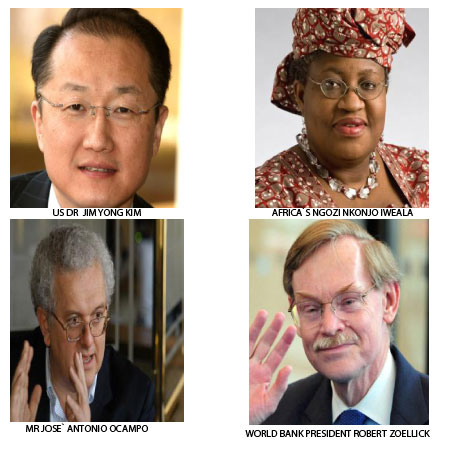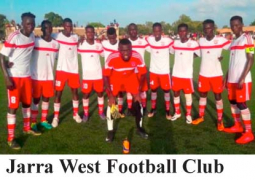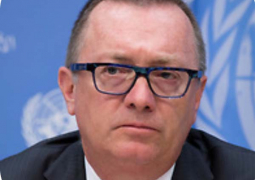
In a weeks’ time or so a new president will be voted to wield the affairs of the World Bank.
Robert Zoellick, the current World Bank President, will step down from the post when his term ends in June, and a new president will be voted in by a 25-member board of directors of the Bank, of which the
Unlike the past 68 years when the presidency of the Bank was hardly contested, if at all it is, today it is open for contest so that the most competent, qualified and deserving personality/candidate can assume the office to work objectively for the good and development of the world.
All of the World Bank’s 187 member nations have committed to a merit-based process to select Zoellick’s successor.
Emerging and developing economies have long talked up their desire to break US and European dominance of the Bretton Woods Institutions, but have until now failed to build a coalition large enough to change the status quo.
As the race to the World Bank top job gets hotter (scheduled to take place on April 20 -22, 2012, in Washington DC), three main candidates have been shortlisted or nominated to take over the post. These are Africa’s Nigerian Finance Minister Ngozi Okonjo-Iweala,
Dr Ngozi Okonjo-Iweala
Dr Ngozi Okonjo-Iweala, a former managing director of the World Bank and current finance minister of
Dr Okonjo-Iweala is a development professional who spent more than two decades at the World Bank before becoming the finance minister of
Okonjo-Iweala, 57, had served as World Bank VP and managing director and would be the first woman World Bank president, if she gets the office.
While Okonjo-Iweala is receiving support globally, there are cracks even in the AU camp, as President Paul Kagame of
It is also expected that voting percentage might work against Dr Okonjo-Iweala as
Dr Jim Yong Kim
Dr. Jim Yong Kim, 52, is the sole candidate of the
Kim was director of the department of HIV/AIDS at the World Health Organization and, while there, led a successful initiative to treat three million AIDS patients by 2005.
He earned a medical degree and an anthropology doctorate from Harvard, where he founded a non-profit agency Partners in Health (PHI) with medical school classmate Paul Farmer. The PHI renders community-based healthcare services in a number of African countries.
“Meanwhile, many opinion leaders believe that the
On the other hand, as the sole candidate of the
Also, the decision of the bank’s Board of Directors, which is made up of 25 members, of which the US and European countries already have a majority, may make a great difference. The
Mr José Antonio Ocampo
Columbian nominee José Antonio Ocampo, a former UN under-secretary-general for economic and social affairs, may be lucky if the selection process is done on merit as being promised by the World Bank.
He has managed and reformed major global institutions and government ministries. He is also a leading development economist in academia.
Between 2003 and 2007 Ocampo served as the UN under-secretary-general for economic and social affairs. In that capacity he chaired the UN executive committee on economic and social affairs and headed the UN department of economic and social affairs.
Reports indicate that he also did well in reforming the UN Economic Commission for Latin America and the
From 1989 to 1997 he held a number of senior posts in the Colombian government, including finance minister and chair of the Central Bank board.
In addition, he was minister of national planning, and minister of agriculture and rural development. In all these capacities he was a proven reformer.
The World Bank
The International Bank for Reconstruction and Development (IBRD), widely known as the World Bank, was founded together with the International Monetary Fund (IMF), by the Bretton Woods Conference of 1944 as an international bank to finance the reconstruction and development of member countries.
Starting operations in 1946, the Bank is financed partly by contributions paid by member countries, partly by bond issues.
The national contributions constitute the World Bank’s capital and relate to the individual countries’ share of world trade. The bond issues finance the lending operations of the bank.
Operational revenues have come to be supplemented over the course of time by receipts of interest on, and repayment of the capital of loans.
In financing the economic needs of member countries, the IBRD complements the IMF, which finances temporary balance of payments difficulties. Loans are made to governments or government-guaranteed entities.
At first devoted to the reconstruction needs of industrial countries, the World Bank by the 1950s had focused its attention on the developing world, says Graham Bannock, author of several books on finance and business.
In 1956, the IBRD formed the International Finance Corporation, the purpose of which was to promote growth in the private sector of developing countries and to mobilise domestic and foreign capital for this purpose.
In 1960, the IBRD formed the International Development Association in order to assist the poorer developing countries.
None can really tell what the outcome of the selection cum voting process will be. But as we await the result of the next week voting in of a new president of the world financing institution, we pray that our African Ngozi Okonjo-Iweala succeeds.



